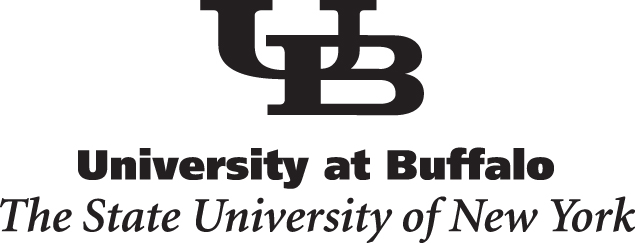|
Lauren Bell, MPA
A graduate of Fordham University, with a Liberal Arts degree in Sociology and Latin American studies, and of San Francisco State University where Ms. Bell earned a Masters of Public Administration, Ms. Bell has long been committed to building and strengthening public and private partnerships for the benefit of marginalized communities. She has lived and worked in San Francisco for the past twenty years during which time she spent over a decade providing and overseeing gang violence prevention and workforce development services. Over the past 8 years, Ms. Bell has worked for the City and County of San Francisco with the District Attorney’s Office, the Mayor’s Office, and for the last 3 years with the Adult Probation Department. In the District Attorney’s Office, Ms. Bell helped to expand and strengthen the office’s flagship program, Back on Track, which is an education and employment program for first time narcotics sellers. In the Mayor’s Office, Ms. Bell was the Director of Criminal Justice and was responsible for overseeing the City and County’s criminal justice and public safety grant making. Ms. Bell transitioned to the Adult Probation Department in the wake of criminal justice realignment to launch and expand an array of reentry and behavioral health services, with a strong focus on the launch of the City and County’s first-ever reentry one stop center called the Community Assessment and Services Center. Additionally, Ms. Bell has been on the board of various grassroots organizations like BAYCAT, Youth Justice Institute and the United Playas. Her presentation will focus on how social enterprise can open new job and career pathways for individuals with criminal histories.
|
|
Jade Shipman Bevans, MA
Jade Shipman Bevans directs the research projects at EARN, a San Francisco-based non-profit that is one of the nation’s largest providers of matched savings accounts. She oversees a wide variety of mixed-methods research, with the ultimate goal of increasing prosperity for low-income populations. To that end, she conducts research among EARN’s target markets to understand the client base, and to determine critical programmatic features. In addition, she develops dashboards and metrics to inform EARN’s program development. She has conducted research and published reports on innovative programs including the Saver’s Tax Credit, Kindergarten to College, and New Markets Tax Credits. EARN’s work has been featured in the New York Times, the Wall Street Journal, Time Magazine, Forbes, the Los Angeles Times, the San Francisco Chronicle, and NPR. Jade holds a Master’s degree in City Planning from the University of Pennsylvania. She also holds a Bachelor of Arts degree with High Honors from the University of California, Santa Barbara in Sociology and History.
|
|
Julian Chun-Chung Chow, PhD
Julian Chow is professor at the School of Social Welfare. A leading thinker in community practice, service delivery and urban poverty, Dr. Chow’s current research interests include community practice and service delivery in urban poverty, ethnic and immigrant neighborhoods; community analysis and needs assessment; program planning and development; and cultural competency services. In 2011, Dr. Chow received a Fulbright Scholarship to teach at the Chinese University of Hong Kong, where he studied the development of social service systems and infrastructure in China and also conducted research as part of a larger comparative study looking at how recent Chinese immigrants fare in Hong Kong, Taiwan and the San Francisco Bay Area.
|
|
Caroline Danielson, PhD
Caroline Danielson is a senior fellow at the Public Policy Institute of California. Her research focuses on poverty and the role of the safety net as well as access to, and enrollment in, a range of social safety net programs such as nutrition assistance, cash assistance, and child welfare. She has also conducted research on state and local governing relationships. Before coming to PPIC she was a principal analyst at the University of California's Welfare Policy Research Project and a faculty member in the Department of Politics at the State University of New York, Potsdam. She holds a PhD in political science from the University of Michigan and a MPhil in Policy Analysis from the Pardee RAND Graduate School.
|
|
Ian Galloway, MPP
Ian Galloway is a senior research associate at the Federal Reserve Bank of San Francisco. He researches and presents regularly on a variety of community development topics including crowdfunding, investment tax credits, the social determinants of health, impact investing, and Pay for Success financing (Social Impact Bonds). He also recently co-edited Investing in What Works for America’s Communities (2012), a collection of essays jointly published with the Low Income Investment Fund on the future of anti-poverty policy. Previously, Ian developed a social enterprise (virginiawoof.com) for the Portland, Oregon homeless youth agency Outside In. He holds a master’s degree in public policy from the University of Chicago and a bachelor’s degree in political science and philosophy from Colgate University.
|
|
Lorraine Giordano, PhD
Lorraine Giordano is the Initiative Offer for the Bay Area Workforce Funding Collaborative at The San Francisco Foundation. She has extensive experience in the field of workforce development including work with boards, community colleges, university research and non-profit employment training agencies. She has directed career training programs in information technology and transportation and logistics, supporting partnerships between community colleges, labor unions, employers and community-based organizations. Lorraine directed a research project at the University of California, Berkeley’s National Center for Research in Vocation Education on labor markets for community college graduates. In 2013, she led the Oakland Workforce Investment Board’s strategic planning process. Lorraine has a PhD in Sociology from New York University.
|
|
David B. Grusky, PhD
David B. Grusky is Professor of Sociology at Stanford University and Director of the Center on Poverty and Inequality. He is a Fellow of the American Association for the Advancement of Science, corecipient of the 2004 Max Weber Award, founder of the Cornell University Center for the Study of Inequality, and a former Presidential Young Investigator. His recent books are The Great Recession (with Bruce Western & Chris Wimer, 2011), The New Gilded Age (with Tamar Kricheli-Katz, 2011), The Inequality Puzzle (with Roland Berger, Tobias Raffel, Geoffrey Samuels, & Christopher Wimer, 2010), The Inequality Reader (with Szonja Szelényi, 2011), Social Stratification (with Manwai C. Ku & Szonja Szelényi, 2008), Poverty and Inequality(with Ravi Kanbur, 2006), Mobility and Inequality (with Stephen Morgan & Gary Fields, 2006), Occupational Ghettos (with Maria Charles, 2004), The Declining Significance of Gender? (with Francine Blau & Mary Brinton, 2006), and Inequality: Classic Readings in Race, Class, and Gender (with Szonja Szelényi, 2006). His research examines changes in the amount, type, and sources of inequality.
|
|
Rob Hope, MPP
Rob Hope is the Chief Program Officer at Rubicon Programs, Inc., an enterprise that equips low income people to break the cycle of poverty. Last year, Rubicon’s Economic Empowerment programs served just over 1,000 new San Francisco East Bay residents, and placed 670 people in jobs. Rubicon’s hallmark is comprehensive, integrated and co-located services built on a foundation of interpersonal relationships. Prior to joining Rubicon in 2009, Rob designed and managed re-entry and workforce development programs for formerly incarcerated people at Goodwill/Easter Seals Minnesota. Rob’s experience also includes criminal justice program evaluation and policy analysis at the Vera Institute of Justice in New York, and community-building around prisoner re-entry issues at Urban Strategies Council in Oakland, CA. Rob has a Bachelor’s Degree in Sociology from Vassar College and a Master’s degree in Public Policy from the Goldman School of Public Policy at University of California-Berkeley.
|
|
Catherine Howard, MCP
Catherine Howard is the Director of Strategic Initiatives at the Northern California Community Loan Fund. A proponent of developing healthy, equitable communities, Catherine has more than 15 years of experience designing and executing community development programs with an emphasis on lending and grant making. Previously, she served as the Director of Healthy Food Programs at Capital Impact Partners and was the inaugural Fund Manager of the $270+ million California FreshWorks Fund, the nation’s largest healthy food financing initiative endorsed by First Lady Michelle Obama. She has also held positions at the City of Oakland Community and Economic Development Agency and the Coalition for Housing and Economic Development in Washington, DC. Catherine has a degree in government and politics from the University of Maryland Honors Program at College Park, from which she graduated magna cum laude and Phi Beta Kappa and a masters degree in City Planning from the University of California, Berkeley.
|
|
Sarah Lightfoot
Sarah Lightfoot is the Associate Director at Women's Action to Gain Economic Security (WAGES), where she oversees fund development, communications, and evaluation. WAGES believes that our economy is ready for an extraordinary change, and we can start by building businesses that empower workers. We partner with low-income Latina immigrants to build co-ops—collectively owned, local businesses—because when women have ownership over their lives and work, they can transform their families and communities. The co-ops that WAGES launches allow women to develop personal and professional skills, become leaders, and gain economic security. The co-op businesses, all of which are located in the San Francisco Bay Area, are engaged in specialty food service and green housecleaning, meaning women can work in healthy environments where they participate in key decisions and share profits equitably. The co-op members earn family-supporting incomes, have the security of benefits and paid time off, and are building assets as full partners in their business. Building on almost 20 years of experience in co-op development, WAGES is also committed to building the field of worker cooperatives and envisions a vibrant community of immigrant-led co-ops across the country.
|
|
Gerald Miller
Gerald Miller is CJCJ’s Director of Adult Community Corrections Services. Mr. Miller joined CJCJ staff after 15 years with the internationally renowned Delancey Street Foundation, where he directed the Institute for Social Renewal. Mr. Miller has implemented model community-based services for special needs offenders, including an intensive case management reentry program for violent offenders returning to the community from the county jail (NoVA). In addition to his international experience presenting on community corrections, Mr. Miller serves on the advisory boards of a number of community and civic organizations, including two terms with the San Francisco Reentry Council.
|
|
Sharon A. Miller
Sharon A. Miller is the Chief Executive Officer of the Renaissance Entrepreneur Center. She has served in this position since 1999. She has worked in the nonprofit sector for more than 25 years. She is the past Chair of the California Association of Micro-Enterprise Organizations, a founder of the San Francisco Economic Development Association. In 2011, she received the US Small Business Administration’s Women’s Business Champion of the Year Award.
|
|
Melanie Moore, PhD
Melanie Moore joined FII in 2013 as Managing Partner, bringing more than 20 years of experience as a professional evaluator and social sector researcher. She has advised a range of nonprofits, foundations, and government agencies on strategies to maximize their impact, particularly within the areas of individual development and community change. Prior to joining FII, Melanie spent eight years running See Change, an impact assessment firm she founded. Melanie holds a PhD in Human Development from Stanford University's School of Education, and a BA in Psychology from Yale University.
|
|
Fabian T. Pfeffer, PhD
Fabian T. Pfeffer is a Research Assistant Professor at the Survey Research Center, Institute for Social Research at the University of Michigan. His main research interests are the comparative study of social inequality and its maintenance across time and generations. His work focuses on the institutional and policy context of social mobility processes and educational inequality in the United States and other industrialized countries. His recent projects have investigated the change in wealth inequality during the Great Recession, the relationship between parents’ wealth and their children’s educational and occupational outcomes (compared both across time and countries), the transmission of inequality across multiple generations in the United States, the role of education in intergenerational social class mobility, international comparisons of educational inequalities, and inequalities in U.S. higher education. He received his PhD in sociology from the University of Wisconsin-Madison in 2010. Further information can be found at www.fabianpfeffer.com.
|
|
Leigh Phillips, MA
Leigh Phillips is the Director of the San Francisco Office of Financial Empowerment (SF OFE). She has worked for Treasurer José Cisneros since December 2004, launching the country’s second “Office of Financial Empowerment” in 2009. Leigh has successfully managed the creation and implementation of the City and County of San Francisco’s financial empowerment initiatives, including the “Bank On” program – the first municipal effort to bank the unbanked, which has since been replicated in 100 cities and states across the country and the “Kindergarten to College” program, the nation’s first universal college savings program currently providing publicly funded college savings accounts to every incoming public school kindergartner. Her published reports include case studies on Bank On San Francisco, Kindergarten to College, and employer engagement strategies. The work of the SF OFE has been featured in publications such as the New York Times, the Economist, Time Magazine, and the San Francisco Chronicle, and featured on NPR and CNN. She received both her Bachelor of Arts in English Literature and Social Sciences and a Masters of Economic and Social Sciences in Women’s Studies from the University of Manchester, UK.
|
|
Raquel Pinderhughes, PhD
Raquel Pinderhughes is Professor of Urban Studies and Planning at San Francisco State University. She is the founder and Executive Director of the Environmental Literacy Project and creator of Roots of Success, an empowering environmental literacy and job readiness curriculum and teacher training program taught to youth and adults who face barriers to employment. Roots of Success is taught in high schools, youth programs, job training programs, prisons, juvenile facilities, re-entry programs, environmental organizations, community colleges, community-based organizations, and government agencies in 36 states, Puerto Rico, the UK and South Africa. This nationally recognized educational resource helps schools and programs prepare youth and adults to access good jobs and improve conditions in their communities. To date, over 10,000 students have gone through the course. An expert on green jobs and green workforce training, Raquel’s landmark study, Green Collar Jobs: An Analysis of the Capacity of Green Business to Provide High Quality Jobs for Men and Women with Barriers to Employment, informs understanding of how to harness green business growth to fight both pollution and poverty and provide pathways out of poverty through green collar job training and work force development. The job-training model Raquel developed, has been used to inform the development of green job training programs throughout the United States, including the Oakland Green Jobs Corps and the Green Pathways out of Poverty program funded with ARRA dollars.
|
|
Victor Rubin, PhD
Victor Rubin is Vice President for Research at PolicyLink, a national nonprofit institute for policy change. He has been an urban planning researcher, teacher, and consultant for more than 30 years. He has also been leading local engagements on inclusive economic development strategies in Detroit, Baltimore, and several other cities, and written about these strategies in “Economic Inclusion: Advancing an Equity-Driven Growth Model” for the Big Ideas for Jobs project. He has written several reports in recent years documenting the evolution of efforts to improve community health through a focus on the built environment, including health impact assessments, health elements in general plans, and coordination between planners and public health leaders. He has served as a national planning committee member for the New Partners for Smart Growth conference and a guest editor of the Journal of the Community Development Society. Victor joined PolicyLink in 2000 after serving as Director of the HUD Office of University Partnerships. He is a member of the California Planning Roundtable and was formerly Adjunct Associate Professor of City and Regional Planning at the University of California, Berkeley, the department where he earned his MCP and Ph.D.
|
|
Vishnu Sridharen, JD
Vishnu Sridharan, JD, became Mission SF's MY Path Director in 2012. Prior to coming to Mission SF, he was a policy analyst at a Washington, D.C. think tank, where he conducted research and advocacy around how national, state, and local policies can give integrate financial capability interventions into government, community-based and private sector anti-poverty interventions. Vishnu also has a deep background in human rights, in particular social and economic rights, from his legal work in China and community building work as a Peace Corps Volunteer in El Salvador. He earned a bachelor's degree in Philosophy from Columbia University and a law degree from Stanford Law School.
|
|
Catherine Vu, PhD
Catherine Vu is currently the Director of Research in Santa Clara County’s Social Services Agency. She received her B.S in Economics/Management Science from UC San Diego, her M.P.A from Cornell University with an emphasis on Social Policy, and her MSW and PhD from UC Berkeley.
|
|
Celeste Watkins-Hayes, PhD
Celeste Watkins-Hayes is an Associate Professor of Sociology and African American Studies at Northwestern University. She is the principal investigator of the Health, Hardship, and Renewal Study, which explores the economic and social survival strategies of women living with HIV/AIDS in the Chicago area (www.hhrstrategies.org). In 2009, she received a Robert Wood Johnson Foundation Health Investigator Award and a National Science Foundation Early CAREER Award to conduct this research. She has published numerous articles in journals and edited volumes including Social Problems, The Journal of Public Administration Research and Theory, and The DuBois Review. Watkins-Hayes has been profiled in Essence, USA Today Weekend, and the Chicago Sun-Times. Watkins-Hayes received her MA and PhD in sociology from Harvard University and a BA from Spelman College. While at Harvard, she was a fellow in the Harvard Multidisciplinary Program in Inequality and Social Policy.
|







